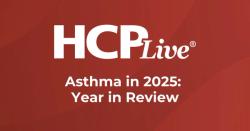
OR WAIT null SECS
Gastroesophageal Reflux Disease and Asthma Exacerbation Linked
Despite conflicting data, investigators form Spain found that gastroesophageal reflux disease and asthma are bidirectional, with each disease exacerbating each other.
A recent study from Spain found a weak association between gastroesophageal reflux disease (GORD) and asthma exacerbation, despite the 2 conditions often coexisting in afflicted patients.
In recent years, divergent findings about the associations between the 2 diseases had been reported.
A key objective of asthma management had been controlling asthma-related comorbidities, with GORD being a comorbid condition for which patients received medical or surgical treatment in the past.
Though they appear to be linked there has been a distinct lack of literature on the mechanism and direction of causality, and the overall relationship between FORD and asthma exacerbation remained unclear.
Positive, negative, and no associations had been reported in the limited studies that existed.
Investigators led by Francisco-Javier Gonzalez-Barcala, PhD, Department of Medicine, University of Santiago de Compostela, proposed a meta-analysis of the association between GORD antecedents and the occurrence of asthma exacerbation.
The Study
Gonzalez-Barcala and colleagues selected pertinent studies that they identified by searching MEDLINE, EMBASE, Conference Proceedings Citation Index-Science, the 5 regional bibliographic databases of the World Health Organization, and the Open Access Thesis and Dissertations.
The study search concluded in July 2021.
Following this, 2 of the researchers of the current study independently screened the studies to determine what was eligible for a full text review before assessing the quality of the studies using the Newcastle-Ottawa Scale (NOS).
Odd ratio (OR) and risk ratio (RR) were considered as measures of effect in the study.
Finally, a sensitivity analysis was conducted, which re-estimated the summary OR based on the extreme scenario that the included cross-sectional studies represented only half of the studies conducted on GORD and asthma exacerbation, the unpublished cross-sectional studies found an OR of 1, and the prevalence of asthma exacerbation being the same as the average prevalence.
The Results
Overall, the studies included in the present study enrolled a total of 1,612,361 patients, more than 250,000 of whom experienced asthma exacerbation.
The study covered 5 continents and a variety of age groups.
Overall, GORD showed a weak association with asthma exacerbation (OR= 1.27, 95% CI 1.18 to 1.35), with that weak association having been observed throughout different subgroups.
Despite this, investigators did note that GORD and asthma exacerbation was stronger in pediatric asthma patients (OR=1.32, 95% CI 1.21 to 1.44) than in adults (OR=1.26, 95% CI 1.07 to 1.48), and 6 of the 16 European studies reported that the odds of asthma exacerbation were slightly higher for European non-British populations.
Of the available studies, 2 focused on very specific populations such as pregnant women and individuals exposed to environmental agents from 9/11 events.
The re-estimated summary OR after the exclusion of the 2 studies remained the same, however.
The investigators noted that the association between the 2 diseases was bidirectional, with each one exacerbating the other. Asthmatic cough and asthma medication was also reported to exacerbate GORD by increasing the pressure gradient across the lower oesophageal sphincter.
Overall, the meta-analysis suggested that GORD provoked asthma exacerbations.
“However, in the stratified analysis by type of cohort study (prospective versus retrospective), the association between GORD and asthma exacerbation lost its statistical significance in the retrospective study subgroup, probably due to the limited number of studies in this subgroup,” the team wrote. “Furthermore, we reported a stronger association between GORD and higher frequency of exacerbations which may be related to the hypothetical interrelationship of the two conditions.”
The study, “Gastroesophageal reflux disease and asthma exacerbation: A systemic review and meta-analysis,” was published online in Pediatric Allergy and Immunology.


